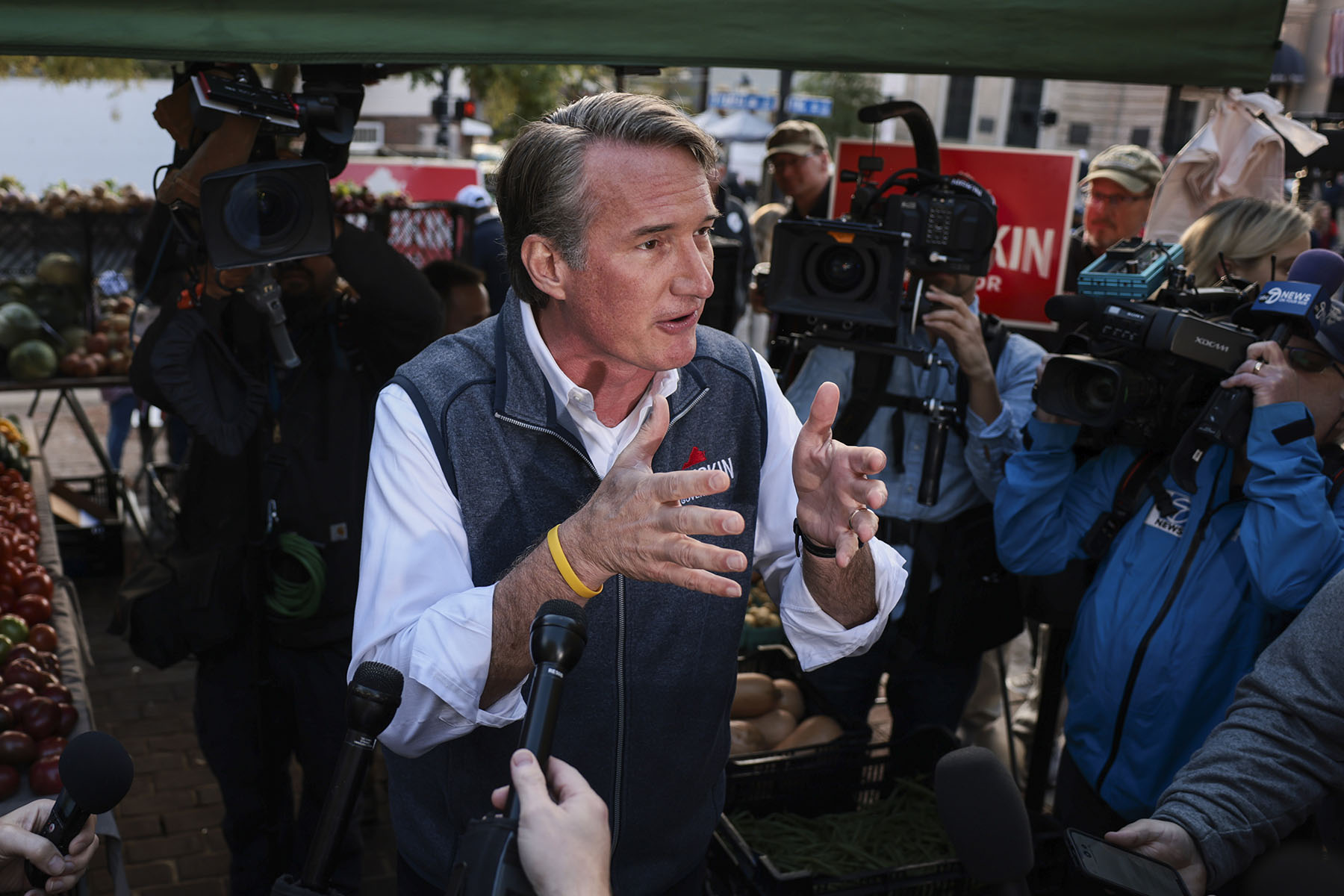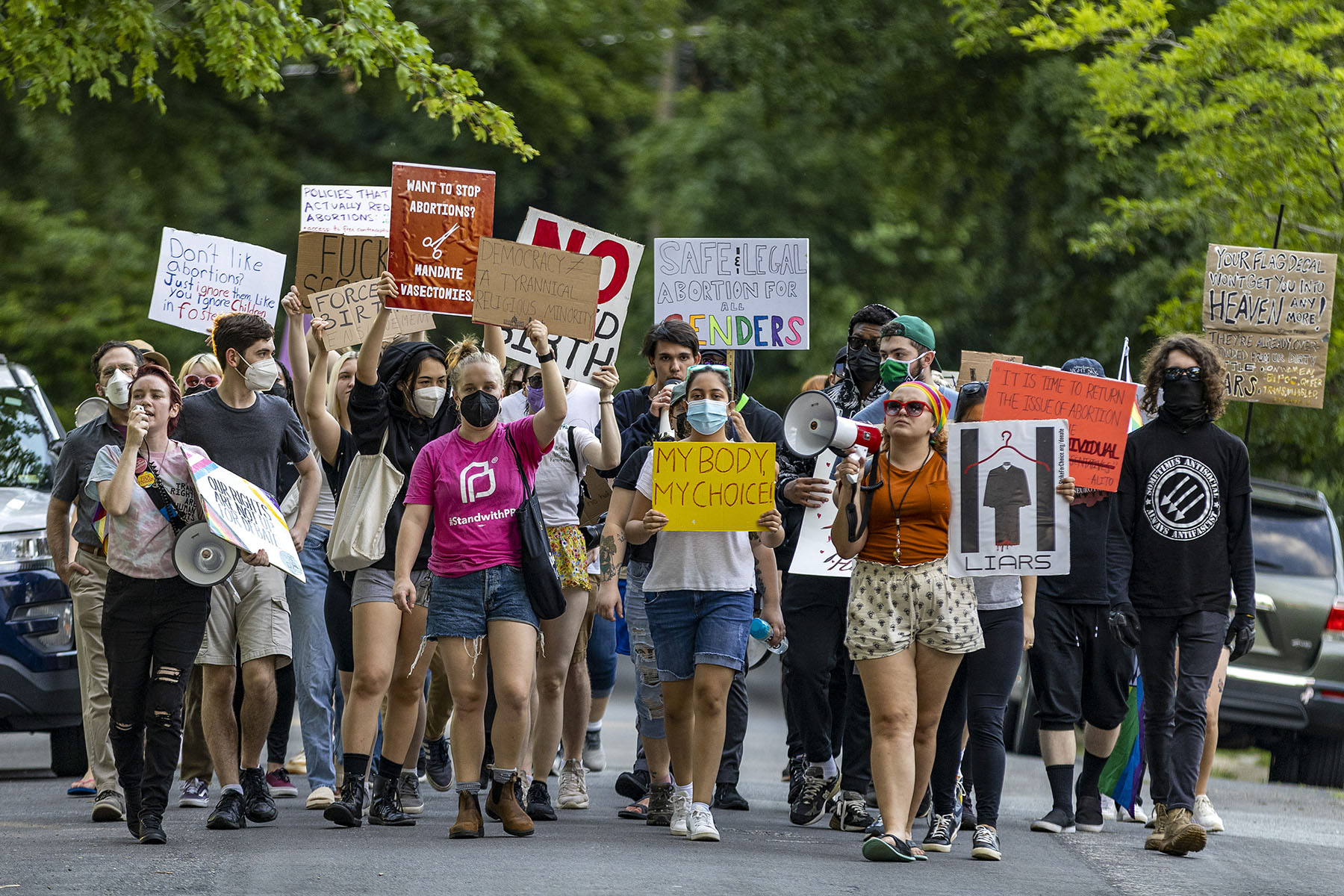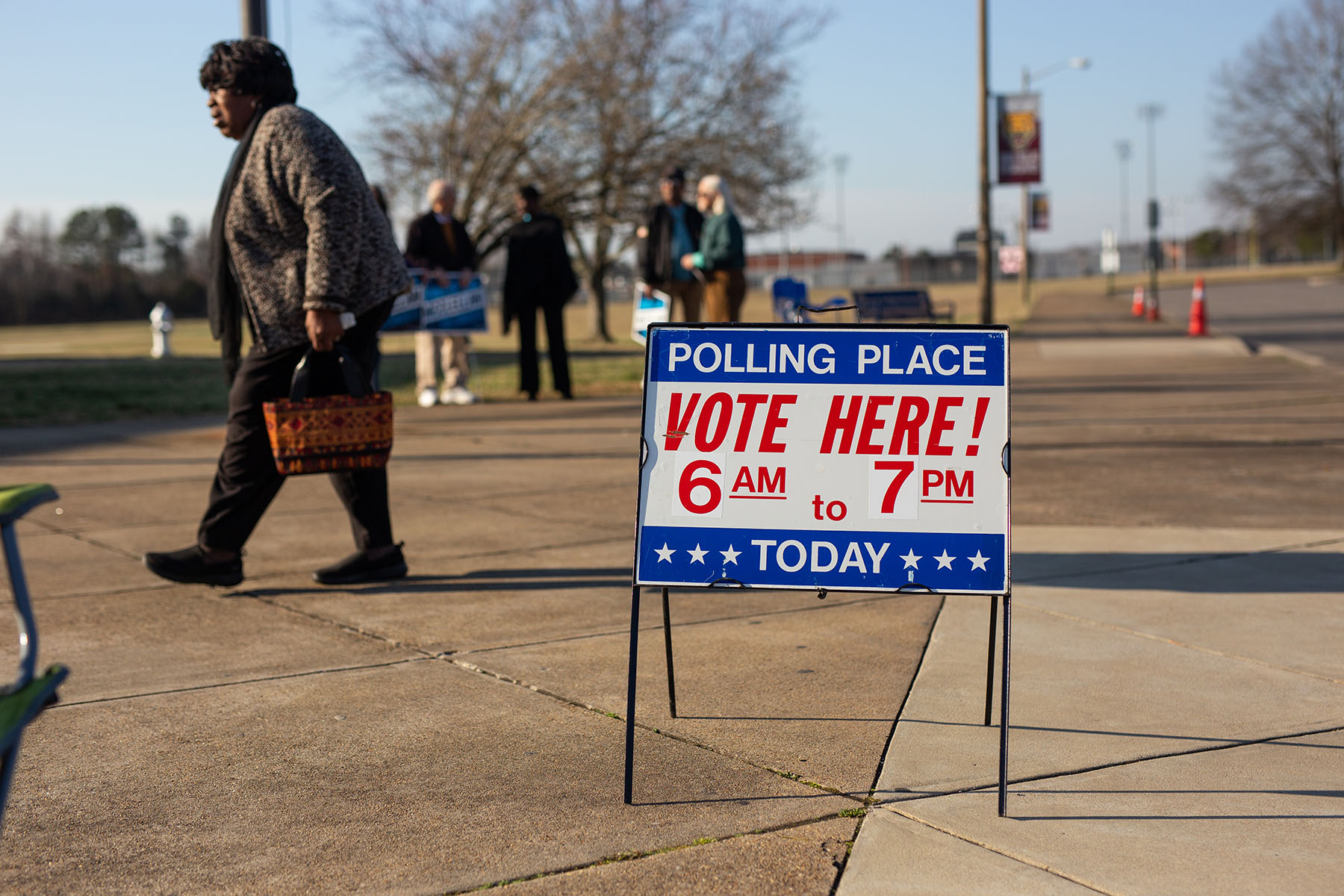Your trusted source for contextualizing abortion and politics news. Sign up for our daily newsletter.
Voters in Virginia will decide control of the state’s legislature this fall, choosing to cement the state’s Democratic “brick wall” against abortion restrictions or clear a path for Republicans to enact a 15-week ban championed by the state’s governor, Glenn Youngkin.
Every seat in the state’s legislature will be up for grabs this November, setting up an expensive and narrow fight that will likely come down to just a handful of competitive seats.
Virginia’s elections could have broad implications for abortion access in the South, where many states have already outlawed abortions at 15 weeks of pregnancy or earlier. Politically, the elections will be an important test of Americans’ support for abortion access when the issue isn’t directly on the ballot ahead of the 2024 elections.
“Voters in the district know that [reproductive] rights are at risk in this particular election and they’re ready to vote for it,” said Susanna Gibson, a Democratic candidate in a highly competitive Richmond-area seat who is centering reproductive rights in her campaign.
Gibson, a nurse practitioner and mom of two young kids, said in an interview that she was prompted to run for office after the U.S. Supreme Court overturned Roe v. Wade. “It was, quite frankly, never my plan to run for office. But as a nurse practitioner, I know better than anyone that a politician has no place in our exam room.”
Abortion access in Virginia since the end of federal abortion rights has hung on Democrats’ slim majority in the state Senate — or what Democrats called a “brick wall” against abortion restrictions and other conservative proposals coming from Youngkin and the GOP-controlled House.

Just two years ago, Virginia Republicans had been locked out of the governor’s mansion for almost a decade and appeared all but powerless. Then in 2021, Youngkin led a Republican ticket to a stunning red wave, a shock to Democrats in a state that President Joe Biden carried by 10 points just a year prior.
When Virginians voted that fall, the U.S. Supreme Court hadn’t yet heard arguments in the case that would end federal abortion protections. Virginia Democrats say much has changed since.
“Reproductive health care will be the number one motivating factor for how people vote,” House Minority Leader Don Scott, a Democrat, said in an interview. “The economy, education, gun violence, safety — all of those issues are being framed around who you trust to deal with them. And I don’t think people want to trust MAGA Republicans, especially those who want to restrict women’s reproductive health care and reproductive health care access.”
Scott said in an interview that his party’s coordinated campaign backing House and Senate candidates has been on the ground engaging voters on abortion and other issues since May as part of what he called the “largest and earliest field program” in the history of the state party for a state house race.
The first TV ad from the coordinated campaign focused on abortion, warning voters that the type of restrictions levied in surrounding states could soon face Virginians and that Republican policies could result in “women and doctors in jail.” The ad also mentions death penalty punishment for women who get abortions, a reference to a failed proposal in South Carolina.
“It’s happening all around us,” the narrator says. “MAGA Republicans in Richmond want Virginia to be next.”
Youngkin has been clear that banning abortions after 15 weeks of pregnancy with exceptions for rape, incest and to save the life of the pregnant patient is a key legislative priority. The Youngkin-backed measure that failed in the legislature earlier this year did not include punishments for pregnant people who obtained abortions, but physicians would face a felony punishable by two to 10 years in prison and a fine of up to $100,000.
Leaders with Youngkin’s political action committee told reporters this summer that heading into campaign season, Republicans would be focused on the rising cost of living, public safety and education.
Reporting from NBC News last month confirmed that the 15-week ban not only remains a top priority for Youngkin, but also would be part of Republicans’ pitch to voters. They believe such a ban to be a “consensus” most Virginians will support, based on all-women focus groups conducted by Youngkin’s state PAC over the summer, NBC News reported. The PAC, Spirit of Virginia, did not respond to a request for comment directed at its director.
A March poll of registered Virginia voters found that just 17 percent want to see the state’s abortion laws become more strict. The Washington Post-Schar School poll found that 41 percent want to see abortion laws become less strict, and 34 percent support the status quo. Asked specifically about a 15-week abortion ban with some exceptions, 49 percent said they would support it while 46 percent said they would oppose it.
Abortions in Virginia are legal though not explicitly protected through the first 26 weeks of pregnancy, typically the end of the second trimester. Abortions after that point are legal only if physicians certify that the procedure is needed to avoid death or substantial and irremediable harm to the pregnant patient’s mental or physical health.
“I don’t think there could be enough attention paid to these races in Virginia this year,” said Han Jones, the interim executive director of Planned Parenthood Advocates of Virginia. “When it’s directly on the ballot, people are going to vote for their rights. People should be watching Virginia to see if voters are going to — and I believe they will — leverage that into what candidates they vote for.”
Youngkin, who was a little-known newcomer to politics when he launched his campaign for governor, quickly became a Republican rising star — one with presidential aspirations. Youngkin hasn’t ruled out a late entry into the crowded GOP primary field, and another victory for Republicans in Virginia this fall could only help bolster his national profile.
Already, Youngkin’s national glow is proving to be a boon for state Republicans, who have so far outraised Democrats as campaign season formally kicks off this week, according to the Virginia Public Access Project, a nonprofit that tracks campaign finance data.
At least two sitting Republicans in competitive races have echoed support for a 15-week ban during their campaigns. State Sen. Siobhan Dunnavant, an OB-GYN in a competitive Richmond-area seat, released a 60-second commercial in June spelling out her support for such a ban. Dunnavant said in an interview with The Washington Post she will also champion legislation clarifying that abortion restrictions do not apply to nonviable pregnancies. Notably, she did not support the Youngkin-backed bill because it did not include an exception for fetuses with severe abnormalities.

“My own experience as a mother has informed my care and my patients’ experiences have shaped me. This is the perspective I bring to the conversation on abortion,” Dunnavant said.
State Del. Karen Greenhalgh, who is in a competitive race in the Virginia Beach area, says she believes that “all life is precious,” leading to her support for Youngkin’s proposal. Greenhalgh’s platform, as it appears on her website, also says the state could do more to support mothers and babies.
Another Republican candidate, John Stirrup, was recorded saying he “would support a 100 percent ban” on abortion, The Washington Post reported. Stirrup, who is running in a competitive Northern Virginia district, later said that if elected, he would instead support a 15-week ban.
Early voting ahead of Virginia’s November 7 elections starts September 22.







